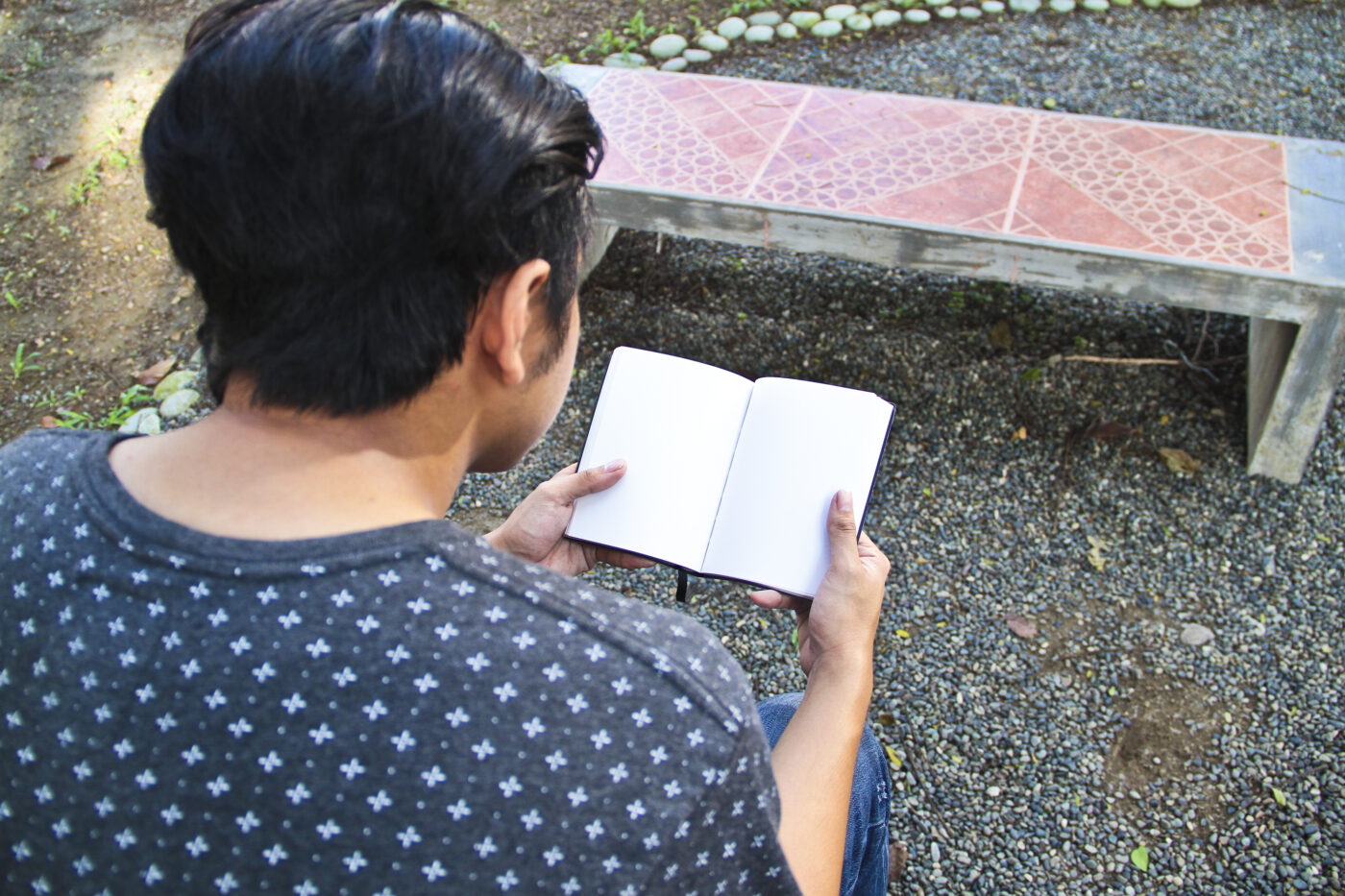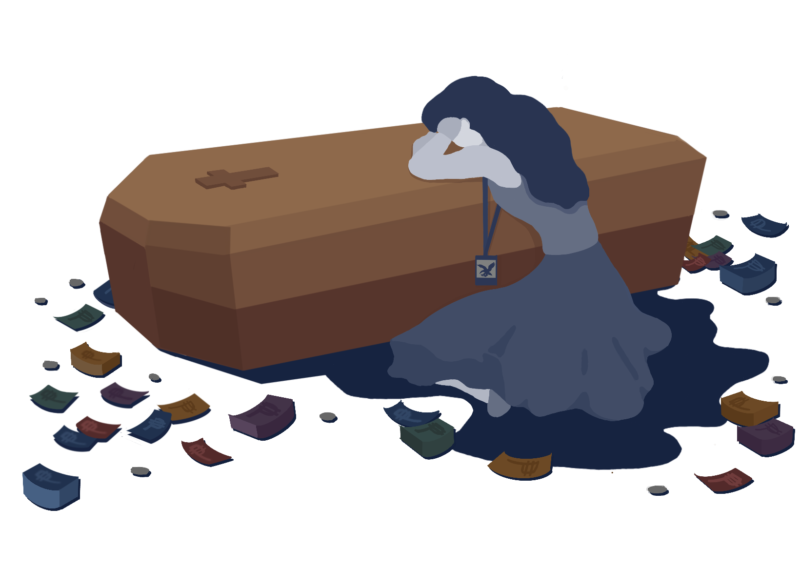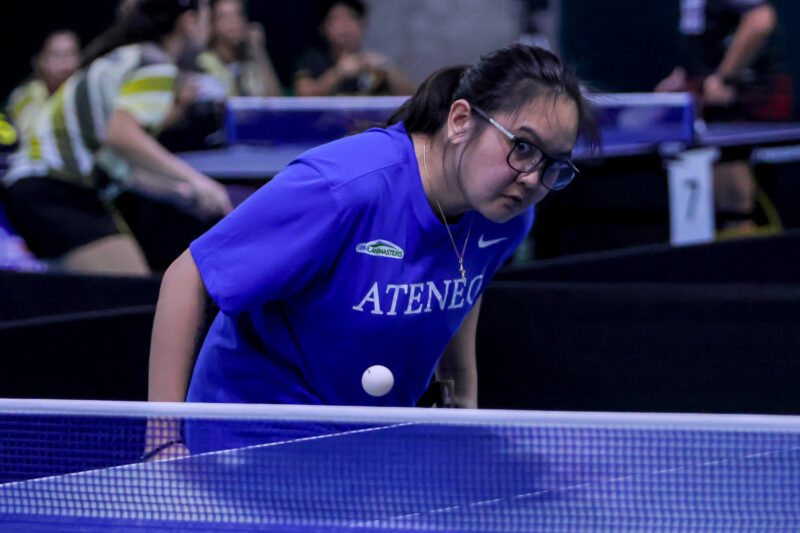A young man sits at the back of his class. He slouches in shame and covers his mouth with a handkerchief in an attempt to muffle his own grunts and squeaks. His classmates laugh at him; they don’t understand. He has Tourette’s syndrome, and his vocal tics frustrate no one more than himself.
The Ateneo cannot disclose exactly how many students with special needs (SSNs) study in the university. Some students declare their problems upon enrollment, while others only find out for themselves during the academic year. Unbeknownst to most students, the Ateneo has policies, processes and programs for the welfare of SSNs.
Defining disabilities
According to the Department of Education report in 2000, 12% of the population in the Philippines have special needs; 2% are gifted while 10% are those with disabilities. The term “disability” refers only to the consequence of impairment. Throughout history, however, “disability” has become an instrument of discrimination and derogation. “Special needs” is now a more commonly used and politically correct term.
The office of the Associate Dean for Student Affairs (ADSA) plans to have “awareness assemblies” in the next few years, to educate the Ateneo community on understanding and helping SSNs in school.
Teya Paulino, ADSA SSN specialist and Ateneo Special Education Society (Speed) Buddy Program Liason, says that it is important that SSNs should not be mistaken for those suffering from learning disabilities. Special needs include disabilities such as autism, Tourette’s, Attention Deficit Hyperactivity Disorder (ADHD), Down syndrome and blindness.
“Learning disabilities are when there’s a disability handling how to absorb [information],” Paulino clarifies. Dyslexia (reading disability), dyscalculia (mathematics disability) and dysgraphia (writing disability) fall under this category.
ADSA Rene San Andres says, SSN or not, “the bottom line is the ACET. If you pass the ACET and you’re given the acceptance letter, then you get in.” It is assumed that an accepted student has the capacity to function in a university setting, as they did during the entrance exam.
A collaboration
“For students with special needs, there’s an automatic collaboration required of four offices,” says San Andres.
The Office of Student Affairs, Office of the Associate Dean of Academic Affairs (ADAA), LS Office of Health Services (LSOHS) and LS Office of Guidance and Counseling (LSOGC) go hand-in-hand to accommodate SSNs in the Ateneo.
SSNs are encouraged to disclose their problems to the LSOHS upon enrollment via a mandatory questionnaire. “The problem is most parents and students themselves would not be open to disclose these,” says Albert Go, specialist on SSNs and psychologist at the LSOGC.
Paulino emphasizes, “If it’s not declared, then it’s so hard for us to pinpoint who has disabilities.”
San Andres explains that SSNs need to be identified because they may need special arrangements in terms of lectures, medication and continuous monitoring by psychologists and counselors.
Go adds that most of the cases the LSOGC handles actually come from referrals and reported incidents. These incidents sometimes reveal students who have never been diagnosed but show signs of special conditions. Paulino recalls a case wherein a freshman realized that he was different from other students and suspected he had ADHD. He eventually approached the LSOGC and discovered his suspicions were correct.
Paulino says students and teachers sometimes approach ADSA when they notice an SSN’s behavior. ADSA then calls on the SSN’s classmates, and talks to them about the SSN’s specific disability and how to help the SSN during class. San Andres says, “It may mean stretching their patience or developing specialized skills.”
“Some students behave normally until they stop taking their medication,” explains San Andres. If there are medical concerns with the SSN, then the LSOHS is informed.
“Some psychologists in LSOGC do have students with special needs as regular counselees,” says Go. He says that the Ateneo’s committee called the Students with Special Needs Network, comprised of various offices, is tasked to identify SSNs and “provide the necessary services to make their stay in the Ateneo more fruitful.”
Despite the Ateneo’s extensive planning for SSNs, San Andres points out that there can’t just be one process for helping SSNs. “You have to have specific intervention programs… Even those with Asperger’s may have different degrees [of severity]. The intervention for one may not work for another.”
Paulino says, “Most of [the SSNs] have social skills problems, so at least there should be a support system for them.” Speed, the Atenean organization that caters to people with special needs, offers a multi-discipline approach to help SSNs, which includes their Buddy Program.
More than a fun run
“[The Speed Buddy Program] is mainly for socialization,” says political science senior Jonina Aquino, the president of Speed.
According to the Speed website, the Speed Buddy Program aims to help SSNs integrate into the Ateneo community through the development of a bond with trained students. This two-year-old program depends on the LSOGC and ADSA referring students to the organization.
“It’s really up for ADSA to consult with the student’s parents if they want to avail of the program. Our intent with the program was to show that… it’s ADSA’s goal for these students to graduate in Ateneo,” says Aquino.
The trained buddies used in the Speed Buddy Program are chosen based on their participation in Speed. Aquino says, “[This is] so we know that they have experience to handle that kind of behavior.”
The 200+ members of Speed go to partner institutions every week to develop the institutions’ modules. Speed has other projects aside from their Buddy program and area work, such as their Christmas Carnival and February Prom.
“[The prom] is a coming of age for every person. It’s also a good opportunity for [the SSNs] to experience that kind of situation,” says Aquino. Speed has been collaborating with University of Santo Tomas Special Education majors for this project for the past three years.
Speed is also home to No Speed Limit, a fun run they have hosted every January for the past two years. “We’re inviting the Special Olympics [Philippines], for them to bring runners to showcase the ability of SSNs,” says Aquino. She admits that students sometimes mistake Speed for a running organization, given their name and fun run project.
However, the Speed Buddy Program is currently on hold, following the graduation of their last participant, John*, who had Asperger’s.
Work in progress
While the Ateneo continues to raise awareness among students regarding SSNs, Aquino describes it as work in progress. “As of now, it still is a problem because some of the students are… maybe they’re not aware of proper etiquette on people with special needs.”
“It’s important to be sensitive of how students affect [SSNs]. It’s a delicate balancing act. On one hand, we don’t want these students to feel that they are different from the rest. On the other hand, they do have special needs that require special attention,” says Go.
When asked if teachers could reject SSNs from their classes, San Andres said, “No, that would be in violation of the student’s rights. On a case-to-case basis, we do teacher conferences to orient teachers who have students with special needs in their classes.”
Management sophomore David Parker suspected he had dyslexia in high school. After visiting a couple of doctors, Parker realized he was right. Despite the difficulties he encountered while reading, he was put in a merit English class in his first year in the Ateneo. “I found my own technique, holding a piece of paper under every line so I could focus,” he says. “I coped.”
Aquino recalls the last time she met John, during their culminating summer sendoff. “We talked to his life coach, and he was telling us that John has had job offers, that there were companies out there who have programs to accept employees with special needs.”
“[SSNs] are, first and foremost, people, friends, and in Ateneo, fellow Ateneans. Adjust to them like they adjust to you,” says Go.
*Editor’s note: Names have been changed to protect the student’s identity.







